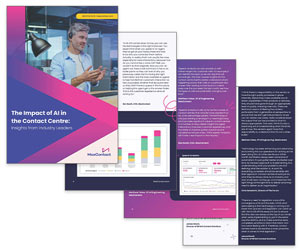Customer satisfaction is intrinsically linked to strong business performance. In today’s world, customers have more power than ever and are able to share their experience with your business in a variety of ways – from online reviews to social media and beyond.
This is great, if they’re talking about your organisation in a positive light, but what if you fail to provide a positive customer experience? Your Customers Will Complain.
According to a recent survey by the Institute of Customer Service, customer complaints are at their highest level in 12 years. While Google search trends show searches for ‘how to complain’ have been rising steadily since 2010, reaching their peak in March 2021.
Jo Causon, chief executive at The Institute of Customer Service, said: “We are at a critical juncture for the UK economy. As we emerge from the Covid-19 pandemic, customers have become ever more discerning with where they spend their money and it is essential that organisations pay close attention to their full service offering.”
Worryingly, 61% of consumers revealed that they believe UK businesses think their service is better than it is, in a new survey carried out by MaxContact.
So how do you know if the service you’re offering customers really meets their expectations? And how do you prevent complaints from happening, in order to protect your business?
Complaints Aren’t All Bad
The truth is, prevention isn’t always the cure. Customer complaints are actually essential for your business. Why? To learn from and continually improve.
No matter how much criticism hurts, it’s vital for growth. In fact, a study by Harvard Business Review found that customers who have a complaint handled in less than 5 minutes go on to spend more on future purchases.
How to Learn From Complaints
Analyse
Are you seeing similar complaints cropping up over and over again? Identifying patterns and repetitions of particular complaints can help you to recognise key issues and work on areas of improvement.
Customer complaints can help highlight areas where your product needs work, or where staff members may need extra training. By observing where complaints are focussed you’re able to prioritise and address issues clearly.
Create a Feedback Loop
Complaints open up opportunities for your team to have honest discussions with your customers. Create opportunities for a feedback loop and welcome suggested improvements into your business rather than waiting for customers to come to you.
See it as an opportunity to improve rather than an attack on your organisation. Having open conversations with customers can help customers feel like the key components to your success that they are.
Create Guidelines to Support Staff
Dealing with angry customers is tough at the best of times, but it’s made even more difficult if you don’t have the right support tools in place to help.
Creating clear guidelines and policies for your staff is vital to turn the dissatisfied into satisfied customers, and align your team’s responses so complaints are dealt with consistently. In most cases, customers are looking for clarity, so having clear processes in place will provide a quality customer experience.
Multichannel Approach
Be clear on how customers can complain to remove any further pain points. If your customer wants to complain but can’t find the right channel to do so, it’ll only cause more frustrations and potentially lead to a worse complaint.
With more customers expecting organisations to interact through digital channels, having a multichannel approach to serve a variety of customer needs is vital.
Jo Causon, chief executive at The Institute of Customer Service, said: “Those brands that have performed best in the UKCSI are those that have maintained a key focus on the whole customer experience journey – providing honest, genuine communication across different channels.”
So instead of trying to mask over complaints or avoid them, embrace and learn from them to continually improve your customers’ experience.
Author: MaxContact
Published On: 12th Aug 2021 - Last modified: 26th Feb 2025
Read more about - Archived Content, Complaints, MaxContact






































